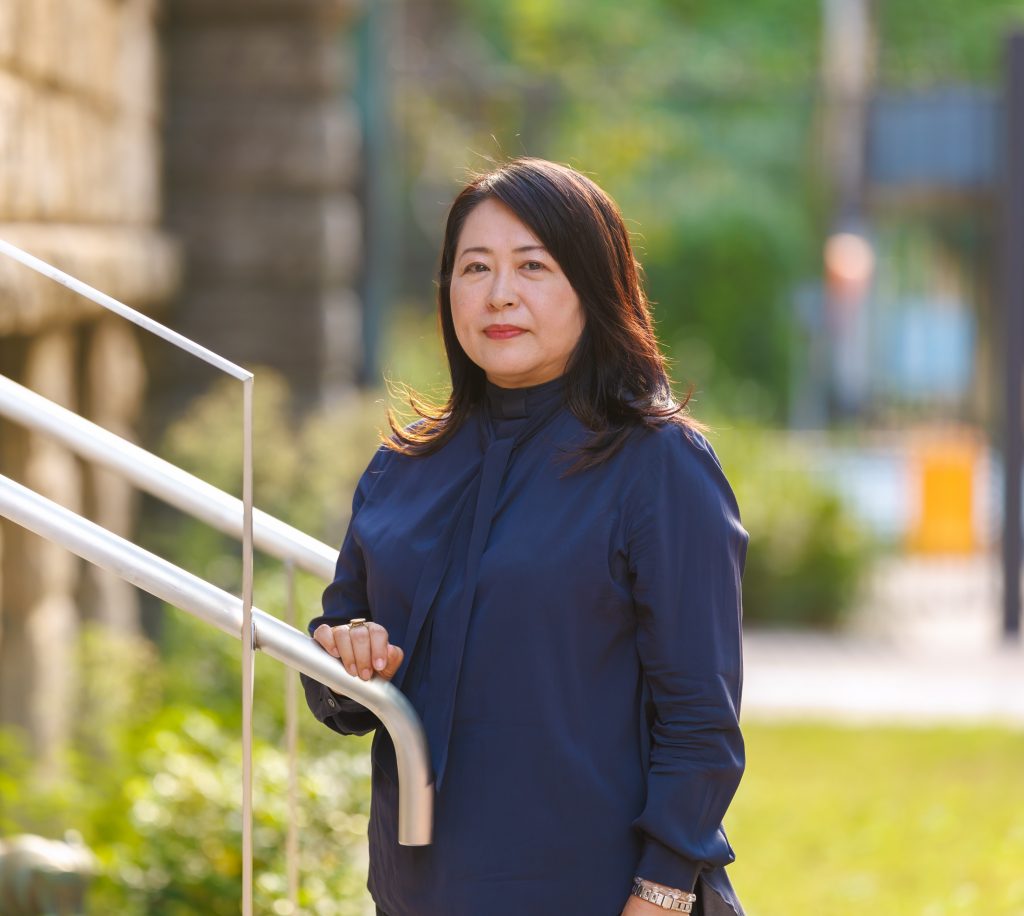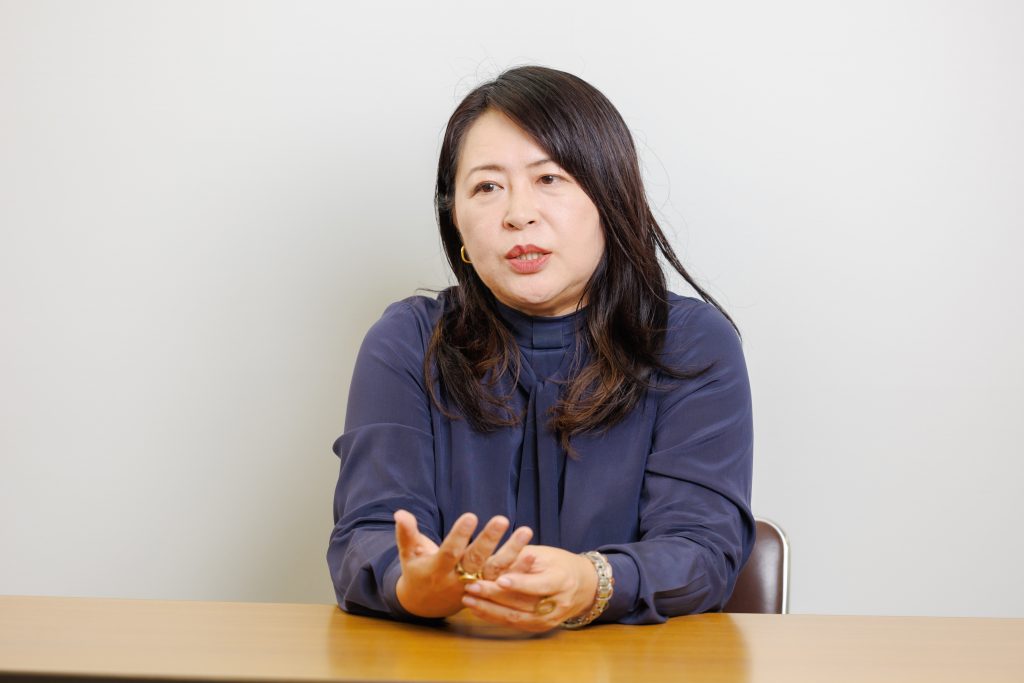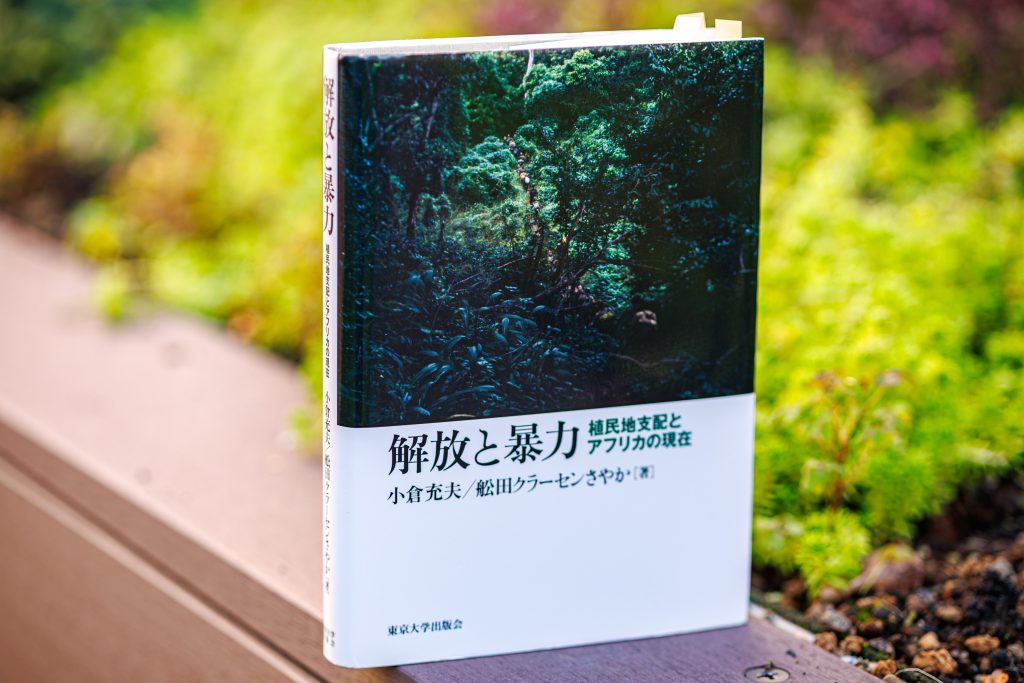
Professor Momoka Maki from the Faculty of Global Studies specializes in African studies. She mainly analyzes the various problems being faced by Africa from multiple angles—including politics, history, society, and gender—while visiting northern Ethiopia and repeatedly carrying out field interviews.
Disasters and armed conflicts frequently occur in Africa, creating many refugees. Why does Africa face such issues? This question led me to the field of African studies.
I mainly study people from the region of Tigray in northern Ethiopia. This area is known for its severe famine from 1984 to 1985. It is also the place where anti-government forces conducted guerrilla warfare against the military regime that started in 1975. The conflict persisted for 17 years until 1991. I embarked on my research in 2002, thinking of also analyzing the causes of the conflict from social and historical perspectives.
Former female soldier who said “The guerrilla era was a great time”

In the course of conducting interviews in the field, I met a woman who used to be a soldier in the guerrilla forces. Subsequently, through further research, I came to understand that there were 20,000 to 30,000 female soldiers involved in the conflict.
Ethiopia is strongly patriarchal, and the status of women is low. In the 1970s, there were more than a few cases of girls under 10 years old being made to marry. Under the banner of socialism, anti-government guerrillas sought liberation of class and nationality as well as implemented policies to liberate women from old, patriarchal customs. Many women answered the call as soldiers or assisting as rearguard support.
A former female soldier said, “The guerrilla era was a great time. There is nothing more glorious than it.” Although guerrilla warfare took place in the rocky mountains and soldiers confronted numerous difficulties, women were treated and respected in the same way as men as a member of the same force.
However, old gender norms returned with the end of civil war, and the fact that women took up arms and fought was covered up. As many women cannot write and there is a lack of records about the existence of female soldiers, I wanted to gather as many of their words as possible.
When talking about Africa’s wars, there is a tendency to always speak of women as victims, but I found that women also have a strong determination to participate in politics and fought to protect their communities.
Even after the war, post-conflict NGO activities inherited the movement to transform women’s politics and society. Mutual support among women spread at the grassroot level, forming a large organization of which approximately 800,000 people are members out of the Tigray region’s population of approximately 5 million people.
In 2020, another conflict broke out again in the region of Tigray for two years. Female soldiers were also employed in this war, but unlike the previous war, they were sent into battle after a short period of training, resulting in many casualties. There was also rampant wartime sexual violence this time, and women suffered greatly.
It was the women of the aforementioned NGO that immediately grasped the situation of such suffering and acted early to give support. I introduced this organization to JICA and several other international agencies, which led to international assistance.
I am neither a journalist nor a member of an international assistance organization, but with more and more requests from multiple angles seeking my opinions as a person who has studied this region for many years, I reaffirmed that there is information that can only be conveyed by researchers. I hope to keep listening to the voices of Africa’s women and record and study their activities to let more people know about these activities and experiences, and help lead to a path of women-centric issue resolution.
The book I recommend
“Kaiho to Boryoku: Shokuminchi Shihai to Afurika no Genzai”(Liberation and Violence: Colonialism in Africa and its Aftermath)
by Mitsuo Ogura and Sayaka Funada-Classen, University of Tokyo Press

This book uses historical perspectives to deeply analyze the various issues being faced by Africa. It should help connect knowledge learned during world history classes in high school and the current state of Africa as reported in the news.
-
Momoka Maki
- Professor
Department of Global Studies
Faculty of Global Studies
- Professor
-
Graduated from the Department of International and Cultural Studies, College of Liberal Arts, Tsuda University and received her Ph.D. in International and Cultural Studies after completing the corresponding doctoral program at the university’s graduate school. Took on several positions—such as assistant professor at the Department of International and Cultural Studies, College of Liberal Arts, Tsuda University as well as assistant professor and associate professor at the Faculty of Global Studies, Sophia University—before assuming her current position in 2022.
- Department of Global Studies
Interviewed: September 2024